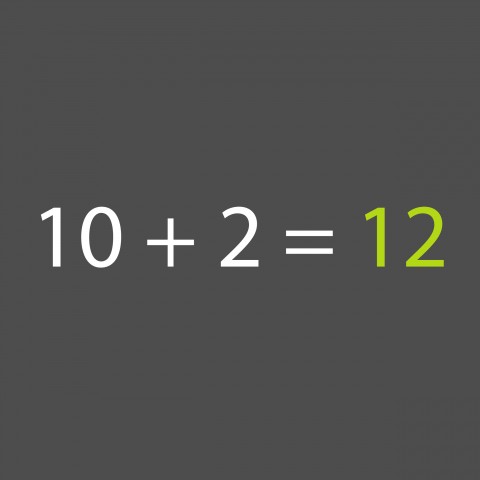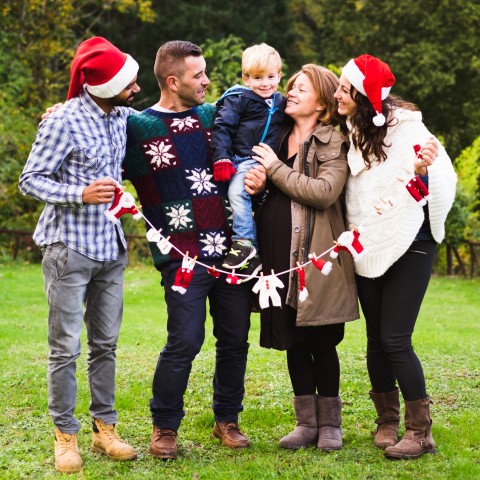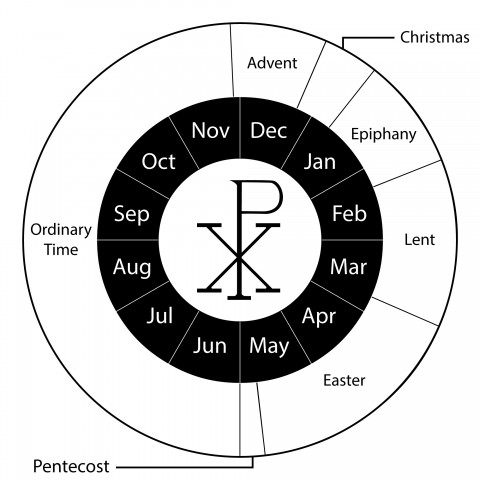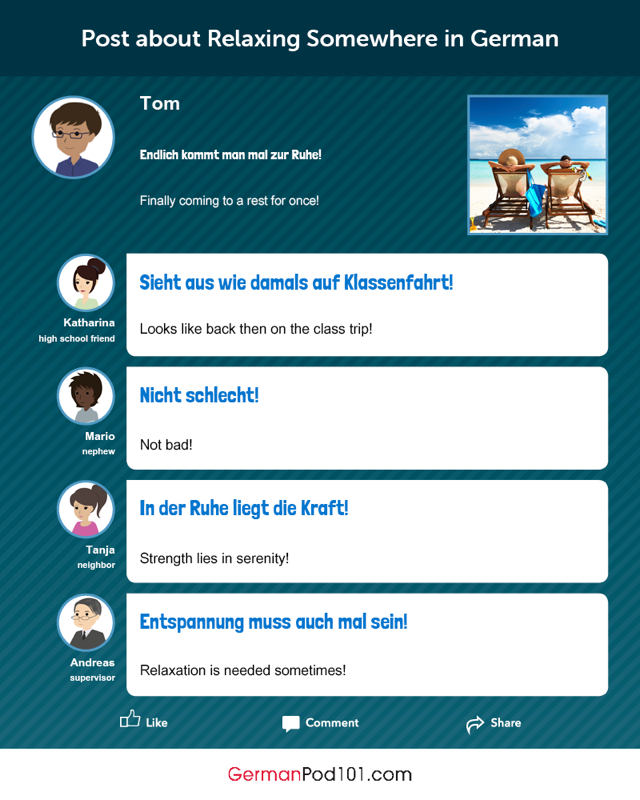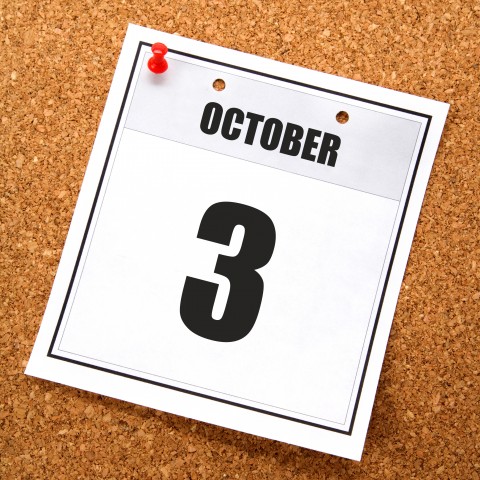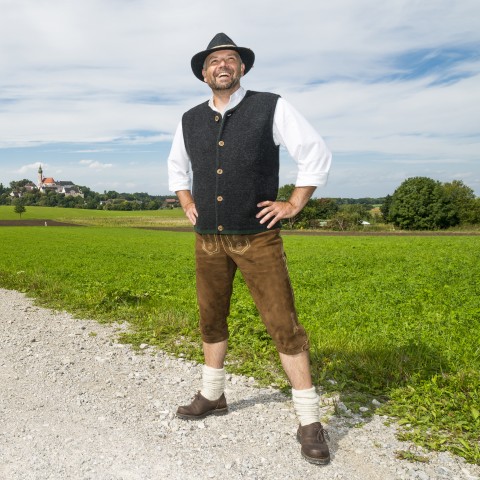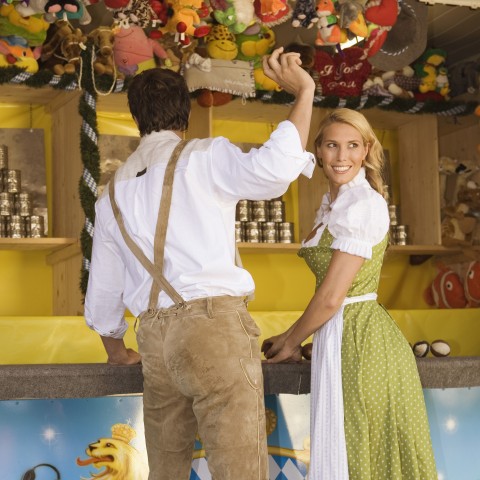
You’re learning to speak German, and it’s going well. Your confidence is growing! So much so that you feel ready to share your experiences on social media—in German.
At Learn German, we make this easy for you to get it right the first time. Post like a boss with these phrases and guidelines, and get to practice your German in the process.

1. Talking about Your Restaurant Visit in German
Eating out is fun, and often an experience you’d like to share. Take a pic, and start a conversation on social media in German. Your friend will be amazed by your language skills…and perhaps your taste in restaurants!
Tom eats at a restaurant with his friends, posts an image of the group, and leaves this comment:

POST
Let’s break down Tom ‘s post.
Gutes Essen mit guten Freunden!
“Good food with good friends!”
1- Gutes Essen
First is an expression meaning “Good food.”
A standard expression to refer to delicious food.
2- mit guten Freunden
Then comes the phrase – “with good friends.”
Repeating the adjective “good” instead of choosing a different positive adjective makes the sentence flow nicely and is quite common in social media.
COMMENTS
In response, Tom ‘s friends leave some comments.
1- Schön, ich wäre gerne dabei gewesen!
His girlfriend, Franziska, uses an expression meaning – “Nice, I would have liked to be there!”
Use this expression to partake in the conversation and also indicate that you’d have liked to be part of the group.
2- Sieht sehr lecker aus!
His neighbor, Tanja, uses an expression meaning – “Looks very delicious!”
Use this comment to agree with the poster about the food.
3- Edel! Gefällt mir!
His college friend, Cem, uses an expression meaning – “Noble! I like it!”
Another, pleasant way of saying the same as the previous two posters..
4- Nächstes Mal bin ich dabei!
His high school friend, Katharina, uses an expression meaning – “Next time I’ll be there!”
Use this expression to show you are feeling optimistic about joining the poster next time.
VOCABULARY
Find below the key vocabulary for this lesson:
gute Freunde: “good friends”
schön: “nice”
ich wäre gerne: “I would have liked to”
lecker: “delicious”
edel: “noble”
gefallen: “to like”
nächstes Mal: “next time “
dabei sein: “to join”
So, let’s practice a bit. If a friend posted something about having dinner with friends, which phrase would you use?
Now go visit a German restaurant, and wow the staff with your language skills!
2. Post about Your Mall Visit in German
Another super topic for social media is shopping—everybody does it, most everybody loves it, and your friends on social media are probably curious about your shopping sprees! Share these German phrases in posts when you visit a mall.
Franziska shops with her sister at the mall, posts an image of the two of them, and leaves this comment:

POST
Let’s break down Franziska’s post.
Shoppen mit meinem Schwesterherz!
“Shopping with my sis!”
1- Shoppen
First is an expression meaning “Shopping.”
Comes from the English word “to shop” and is used only for shopping for clothes, shoes, etc., not for groceries. It is very commonly used.
2- mit meinem Schwesterherz
Then comes the phrase – “with my sis.”
Commonly used to refer to your sister. It is literally translated as “sister heart” and is a casual way of saying you are very close to your sister.
COMMENTS
In response, Franziska’s friends leave some comments.
1- Brauchst du wirklich noch mehr Schuhe?
Her boyfriend, Tom , uses an expression meaning – “Do you really need (even) more shoes?”
Use this expression to show your exasperation with your girlfriend’s shopping sprees. Probably best to reserve this for people who know you well, and understand that you’re not trying to be confrontational or critical in a harsh way.
2- Juhu! Shoppen ist immer gut!
Her high school friend, Lisa, uses an expression meaning – “Yay! Shopping is always good!”
Use these phrases to indicate you’re happy for the poster and what they’re busy with.
3- Ich kenn da ein paar echt gute Designerläden!
Her college friend, Cem, uses an expression meaning – “I know a few really good designer shops!”
Use this expression to partake in the conversation, and to make a suggestion that might be useful to the poster.
4- War gestern Zahltag?
Her nephew, Mario, uses an expression meaning – “Was it payday yesterday?”
Use this expression to be humorous with a slightly sarcastic edge.
VOCABULARY
Find below the key vocabulary for this lesson:
shoppen: “to shop “
Schwesterherz: “sis”
brauchst du wirklich: “do you really need”
Schuh: “shoe”
juhu: “yay”
ist immer gut: “is always good”
ein paar echt gute: “a few really good”
Zahltag: “payday”
So, if a friend posted something about going shopping, which phrase would you use?
3. Talking about a Sport Day in German
Sports events, whether you’re the spectator or the sports person, offer fantastic opportunities for great social media posts. Learn some handy phrases and vocabulary to start a sport-on-the-beach conversation in German.
Tom plays with his friends at the beach, posts an image of the teams, and leaves this comment:

POST
Let’s break down Tom ‘s post.
Es kann nur einen Sieger geben!
“There can only be one winner!”
1- Es kann nur einen geben
First is an expression meaning “there can only be one.”
On social media it is common to use one sentence expressions to capture people’s interest with as few words as possible. It is a common German expression often said in a joking way during tournaments or while watching sports or other competitions.
2- Sieger
Then comes the phrase – “winner.”
This means winner and can refer to any kind of competition.
COMMENTS
In response, Tom ‘s friends leave some comments.
1- Wart nur ab!
His college friend, Cem, uses an expression meaning – “You just wait!”
Use this expression if you’re part of the competing team, and sees the poster’s comment as a friendly dare.
2- Viel Glück und viel Spaß!
His neighbor, Tanja, uses an expression meaning – “Good luck and have fun!”
Use this phrase as a warmhearted wish to the players.
3- Aber bist du es?
His girlfriend’s nephew, Mario, uses an expression meaning – “But is it you?”
Use this expression to be humorous and teasing the poster.
4- Na da bin ich mal gespannt!
His girlfriend’s high school friend, Lisa, uses an expression meaning – “Well then I’m curious!”
Use this expression to express interest in the game and to be part of the conversation.
VOCABULARY
Find below the key vocabulary for this lesson:
Sieger: “winner”
Wart nur ab: “you just wait”
nur: “just”
viel Glück!: “good luck!”
viel Spaß!: “have fun!”
bist du es?: “is it you?”
na: “well”
gespannt sein: “to be curious”
Which phrase would you use if a friend posted something about sports?
But sport is not the only thing you can play! Play some music, and share it on social media.
4. Share a Song on Social Media in German
Music is the language of the soul, they say. So, don’t hold back—share what touches your soul with your friends!
Franziska shares a song she just heard at a party, posts an image of the artist, and leaves this comment:

POST
Let’s break down Franziska’s post.
So viele Erinnerungen!
“So many memories!”
1- so viele
First is an expression meaning “so many.”
A casual remark that can be used whenever you unexpectedly find many of the same things in one place.
2- Erinnerungen
Then comes the phrase – “memories.”
It is quite common to use a short expression like “so many memories”, and not a full sentence such as “I have so many memories” or “This brings up so many memories.” These expressions are used to allude to something without going into detail, only for friends to pick up on what you are trying to say.
COMMENTS
In response, Franziska’s friends leave some comments.
1- Spielte man so was damals?
Her nephew, Mario, uses an expression meaning – “Did they used to play something like that back in the day?”
Use this expression to be playfully sarcastic about the poster’s choice of music. Humorous sarcasm on social media should always be reserved for people you know well, so as to avoid misunderstandings.
2- Ein sehr schönes Lied!
Her supervisor, Andreas, uses an expression meaning – “A very nice song!”
Use this expression to agree with the poster about the agreeability of the song.
3- Hihi ja ich erinnere mich!
Her high school friend, Lisa, uses an expression meaning – “Haha yes, I remember!”
Use this expression to indicate that the song is known to you.
4- Das werde ich mir gleich mal anhören.
Her neighbor, Tanja, uses an expression meaning – “I’ll listen to it in a moment.”
Use this expression to indicate that you’re interested in the topic, and want to partake in the conversation.
VOCABULARY
Find below the key vocabulary for this lesson:
so viele: “so many”
so was: “something like that”
damals: “back in the days”
Lied: “song”
hihi: “haha”
sich erinnern: “to remember”
gleich: “in a moment”
anhören: “to listen to”
Which song would you share? And what would you say to a friend who posted something about sharing music or videos?
Now you know how to start a conversation about a song or a video on social media!
5. German Social Media Comments about a Concert
Still on the theme of music—visiting live concerts and shows just have to be shared with your friends. Here are some handy phrases and vocab to wow your followers in German!
Tom goes to a concert, posts an image of the band, and leaves this comment:

POST
Let’s break down Tom ‘s post.
Die beste Band!
“The best band!”
1- Die beste
First is an expression meaning “the best.”
Describing something as “the best” is quite common on social media to show you really like something.
2- Band
Then comes the phrase – “band.”
This expression is very short and powerful. It is clear though that the poster is only talking about their own opinion. You can use any feminine nouns in this way.
COMMENTS
In response, Tom ‘s friends leave some comments.
1- Und unser Lied!
His girlfriend, Franziska, uses an expression meaning – “And our song!”
Use this expression to indicate to your boyfriend that you’re feeling sentimental about your shared song.
2- Na ja … beste …
His girlfriend’s nephew, Mario, uses an expression meaning – “Well … best … ”
Use this phrase to be slightly sarcastic, in a teasing way.
3- Die mochtest du schon immer!
His high school friend, Katharina, uses an expression meaning – “You always liked them!”
Use this chatty comment to indicate that you recognize the band’s importance to the poster.
4- Also mein Geschmack ist es nicht aber viel Spaß!
His supervisor, Andreas, uses an expression meaning – “Well, it isn’t my taste but have fun!”
Use this expression to share an opinion that differs from the poster’s but in a friendly way.
VOCABULARY
Find below the key vocabulary for this lesson:
die beste: “the best”
Band: “band”
unser Lied: “our song”
na ja: “well “
mögen: “to like”
schon immer: “always”
also: “well”
Geschmack: “taste”
If a friend posted something about a concert, which phrase would you use?
6. Talking about an Unfortunate Accident in German
Oh dear. You broke something by accident. Use these German phrases to start a thread on social media. Or maybe just to let your friends know why you are not contacting them!
Franziska accidentally breaks her mobile phone, and leaves this comment:

POST
Let’s break down Franziska’s post.
Bin erstmal telefonisch nicht zu erreichen!
“For now, I’m not reachable by phone!”
1- Bin erstmal nicht zu erreichen
First is an expression meaning “For now I won’t be reachable.”
A standard sentence used when informing people that your phone is not working at the moment.
2- telefonisch
Then comes the phrase – “by telephone.”
Used whenever you do anything by phone. For example, ordering by telephone or telling someone you will get in touch by calling them. The ending indicates that something is done by/via something.
COMMENTS
In response, Franziska’s friends leave some comments.
1- Oh man was hast du jetzt schon wieder angestellt?
Her high school friend, Lisa, uses an expression meaning – “Oh man, what do you do now?”
Use this expression to indicate some exasperation and/or sympathy with the poster’s situation.
2- Das war sowieso alt! Zeit für ein neues!
Her college friend, Cem, uses an expression meaning – “It was old anyway! Time for a new one!”
Use these phrases if you know the poster’s phone is broken (because this fact cannot be derived from her post), and want to be encouraging.
3- Wir haben aber noch eins zuhause rumliegen!
Her boyfriend, Tom , uses an expression meaning – “We still have one lying around at home!”
Like the comment above – use this phrase only if you know the phone has been lost or broken. The phrase indicates that you wish to be helpful.
4- Oh nein, hat dein Handy den Geist aufgegeben?
Her neighbor, Tanja, uses an expression meaning – “Oh no, has your mobile phone become a ghost?”
Use this question if you’re not sure what happened to the poster’s phone, and wish for more information.
VOCABULARY
Find below the key vocabulary for this lesson:
erstmal: “for now”
oh man: “oh boy”
eh: “anyway”
Zeit für: “time for”
rumliegen: “to lie around”
zu Hause: “at home”
oh nein: “oh no”
den Geist aufgeben: “to give up the ghost (a common German saying used whenever a machine stops working)”
If a friend posted something about having broken something by accident, which phrase would you use?
So, now you know how to discuss an accident in German. Well done!
7. Chat about Your Boredom on Social Media in German
Sometimes, we’re just bored with how life goes. And to alleviate the boredom, we write about it on social media. Add some excitement to your posts by addressing your friends and followers in German!
Tom gets bored at home, and leaves this comment:

POST
Let’s break down Tom ‘s post.
Was ist heute so los? Irgendwer unterwegs?
“What is happening today? Anybody out and about?”
1- Was ist heute so los?
First is an expression meaning “What is happening today?.”
This is a casual expression to ask about what is going on that day, usually followed by friends suggesting ideas.
2- Irgendwer unterwegs?
Then comes the phrase – “Anybody out and about?.”
This is a common social media expression as it is not a full sentence but is just asking if anybody is doing anything that the poster could join.
COMMENTS
In response, Tom ‘s friends leave some comments.
1- Komm mit den Jungs und mir mit in den Club!
His college friend, Cem, uses an expression meaning – “Come to the club with the boys and me!”
Make this suggestion if you wish to be helpful, and invite the poster somewhere.
2- Wir könnten Essen gehen!
His girlfriend, Franziska, uses an expression meaning – “We could go out for dinner!”
Another suggestion if your boyfriend is bored, and you wish to be helpful and encouraging.
3- Entscheidungen, Entscheidungen. Triff die richtige!
His girlfriend’s nephew, Mario, uses an expression meaning – “Decisions, decisions. Make the right one!”
Use these phrases if you wish to tease the poster with a slightly sarcastic comment about the suggestions, perhaps.
4- Du bist immer herzlich eingeladen.
His high school friend, Katharina, uses an expression meaning – “You’re always (warmly) invited.”
Use this expression to warm heartedly invite the poster out too – another comment that shows you wish to be helpful.
VOCABULARY
Find below the key vocabulary for this lesson:
was ist los?: “what is happening?”
unterwegs: “out and about”
mitkommen: “to come with”
wir könnten: “we could”
Entscheidung: “decision”
richtig: “right”
immer : “always”
herzlich eingeladen.: “warmly invited”
If a friend posted something about being bored, which phrase would you use?
Still bored? Share another feeling and see if you can start a conversation!
8. Exhausted? Share It on Social Media in German
Sitting in public transport after work, feeling like chatting online? Well, converse in German about how you feel, and let your friends join in!
Franziska feels exhausted after a long day at work, posts an image of herself looking tired, and leaves this comment:

POST
Let’s break down Franziska’s post.
Ich kann nicht mehr! Wann ist endlich Wochenende?
“I’m exhausted! When’s the weekend?”
1- Ich kann nicht mehr!
First is an expression meaning “I am exhausted!.”
Literally “I cannot anymore”. It is a very common expression that’s used when you are running and out of breath or stressed at work or school or just generally need a break.
2- Wann ist endlich Wochenende?
Then comes the phrase – “When is it finally the weekend?.”
This is a rhetorical question and is very commonly used, as everybody loves to talk about looking forward to the weekend.
COMMENTS
In response, Franziska’s friends leave some comments.
1- Dann koche ich heute!
Her boyfriend, Tom, uses an expression meaning – “Then I will cook today!”
Use this expression to be supportive and helpful to your girlfriend.
2- Oh nein, was ist denn da los?
Her high school friend, Lisa, uses an expression meaning – “Oh no, what’s going on there?”
Use this expression to indicate concern for your friend.
3- Tja kann ja nicht jeder Student sein!
Her nephew, Mario, uses an expression meaning – “Well, not everybody can be a student!”
Use this expression to joke with the poster, teasing them a bit.
4- Ist alles in Ordnung?
Her neighbor, Tanja, uses an expression meaning – “Is everything ok?”
Use this expression to show your concern and worry about the poster’s wellbeing.
VOCABULARY
Find below the key vocabulary for this lesson:
können: “to be able to”
dann: “then”
kochen: “to cook”
ohjemine: “oh no”
was ist denn da los?: “what is going on there?”
Student: “student”
sein: “be”
in Ordnung: “ok”
If a friend posted something about being exhausted, which phrase would you use?
Now you know how to say you’re exhausted in German! Well done.
9. Talking about an Injury in German
So life happens, and you manage to hurt yourself during a soccer game. Very Tweet-worthy! Here’s how to do it in German.
Tom suffers a painful injury, posts an image of his foot, and leaves this comment:

POST
Let’s break down Tom’s post.
Fuß eventuell gebrochen! Erstmal kein Fußball!
“Foot possibly broken! No football for now!”
1- Fuß eventuell gebrochen!
First is an expression meaning “Foot possibly broken!.”
This is a short statement giving the main facts. Men often seem to use short statements like this.
2- Erstmal kein Fußball!
Then comes the phrase – “No football for now!.”
This second statement is equally short and typical of social media. Not too much information, just the facts, afterwards friends usually ask for more details.
COMMENTS
In response, Tom ‘s friends leave some comments.
1- Was wird aus unserem Turnier am Wochenende?
His college friend, Cem, uses an expression meaning – “What’ll become of our tournament this weekend?”
Ask this question to either make conversation (Cause the answer should be clear), or to really want information from the poster.
2- Mein armer Schatz!
His girlfriend, Franziska, uses an expression meaning – “My poor sweetheart!”
Use this expression to show you are feeling sorry for your boyfriend.
3- Das klingt gar nicht gut! Kann ich irgendwie helfen?
His neighbor, Tanja, uses an expression meaning – “That doesn’t sound good at all! Can I help in any way?”
Use this expression to show your concern, and to offer help.
4- Du Tollpatsch! Das wird schon wieder!
His high school friend, Katharina, uses an expression meaning – “You klutz! It’ll be alright!”
Use this insult to show your sympathy while also being supportive and encouraging.
VOCABULARY
Find below the key vocabulary for this lesson:
Fuß: “foot”
Turnier: “tournament”
Wochenende: “weekend”
Schatz: “sweetheart”
irgendwie : “in any way”
helfen: “to help “
Tollpatsch: “klutz”
das wird schon wieder: “It will be alright”
If a friend posted something about being injured, which phrase would you use?
We love to share our fortunes and misfortunes; somehow that makes us feel connected to others.
10. Starting a Conversation Feeling Disappointed in German
Sometimes things don’t go the way we planned. Share your disappointment about this with your friends!
Franziska feels disappointed about today’s weather, posts an image of it, and leaves this comment:

POST
Let’s break down Franziska’s post.
Wann ist endlich Sommer?
“When is it finally summer?”
1- Wann ist endlich Sommer?
First is an expression meaning “When is it finally summer?.”
This is a very common expression used by many people, especially towards the end of winter or during spring. This is a rhetorical question, used to express the poster ́s negative feelings regarding the weather, not actually asking when summer starts.
2- Wann ist endlich Sommer?
Then comes the phrase – “When is it finally summer?.”
Many German people think summer is the best season and think it is too short and not hot enough (temperatures can vary anywhere between 15-35 degrees and it is not very consistent. One day might be hot and sunny, the next cool and rainy). Summer is seen as the time to get outdoors, go swimming or have BBQs. The long evenings (it gets dark at around 9pm in the middle of summer) are enjoyed because during the long winter there is not much sunshine and it gets dark in the afternoon.
COMMENTS
In response, Franziska’s friends leave some comments.
1- Ich komme gerade aus dem Urlaub. Irgendwo ist immer Sommer.
Her college friend, Cem, uses an expression meaning – “I just got back from vacation. There’s always summer somewhere.”
Use these phrases to comment in a chatty way, sharing a bit of personal information.
2- Am Wochenende soll es schön werden!
Her supervisor, Andreas, uses an expression meaning – “It’s supposed to be nice on the weekend!”
Use this expression if you have encouraging news about the weather, with the purpose of being supportive.
3- Sommer, Sonne, Strand und Meer!
Her high school friend, Lisa, uses an expression meaning – “Summer, sun, beach and sea!”
Use this expression to stay part of the conversation.
4- Es wird jeden Tag heller!
Her neighbor, Tanja, uses an expression meaning – “It gets lighter everyday!”
Use this expression if you wish to encourage the poster, and remind them that the end of the bad weather is close.
VOCABULARY
Find below the key vocabulary for this lesson:
endlich: “finally”
kommen: “to come”
sollen: “to be supposed to”
es: “it “
Strand: “beach”
Meer: “sea”
jeden Tag: “every day”
hell: “light”
How would you comment in German when a friend is disappointed?
Not all posts need to be about a negative feeling, though!
11. Talking about Your Relationship Status in German
Don’t just change your relationship status in Settings, talk about it!
Tom changes his status to “In a relationship”, posts an image of him and Franziska together, and leaves this comment:

POST
Let’s break down Tom ‘s post.
Hinter jedem großen Mann stand immer eine liebende Frau.
“Behind every great man is (always) a loving woman.”
1- Hinter jedem großen Mann stand immer eine liebende Frau.
First is an expression meaning “Behind every great man is always a loving woman..”
This is a quote from Pablo Picasso. Quotes are quite common on social media to get people’s attention and portray your post in a certain light.
2- hinter jedem großen Mann
Then comes the phrase – “behind every great man .”
It usually means tall or big; however, in this case it is used as “great”.
COMMENTS
In response, Tom ‘s friends leave some comments.
1- Ich liebe dich!
His girlfriend, Franziska, uses an expression meaning – “I love you!”
Post this phrase if you like your boyfriend’s post, and if you love him, of course!
2- Oh das freut mich für euch!
His neighbor, Tanja, uses an expression meaning – “Oh, I’m happy for you!”
Use this expression if you are feeling positive and happy for the couple.
3- Ihr seid so ein süßes Paar!
His high school friend, Katharina, uses an expression meaning – “You are such a cute couple!”
Use this expression if you feel optimistic about the relationship.
4- Alles Gute mein bester!
His college friend, Cem, uses an expression meaning – “All the best buddy!”
Use this expression to tease the poster a bit.
VOCABULARY
Find below the key vocabulary for this lesson:
liebend: “loving”
lieben : “love “
oh: “oh”
sich freuen: “to be happy”
süß: “cute”
Paar: “couple”
Alles Gute: “All the best”
Alter: “buddy”
What would you say in German when a friend changes their relationship status?
Being in a good relationship with someone special is good news – don’t be shy to spread it!
12. Post about Getting Married in German
Wow, so things got serious, and you’re getting married. Congratulations! Or, your friend is getting married, so talk about this in German.
Franziska is getting married today, so she leaves this comment:

POST
Let’s break down Franziska’s post.
Der schönste Tag meines Lebens!
“The most beautiful day of my life!”
1- Der schönste Tag meines Lebens!
First is an expression meaning “The most beautiful day of my life!.”
This expression is often used to mean somebody’s wedding day. People understand this is usually related to a wedding even if the posters don’t specifically say they are getting married.
2- der schönste Tag
Then comes the phrase – “the most beautiful day .”
“The most beautiful day” is a powerful statement. Usually people would say something like “it was such a beautiful day.” However, big events like weddings or the birth of a child often use superlatives like “the most beautiful”, “the best”, etc.
COMMENTS
In response, Franziska’s friends leave some comments.
1- Und auch der schönste Tag meines Lebens!
Her husband, Tom , uses an expression meaning – “And also the most beautiful day of my life!”
Use this phrase in response to your new wife’s post.
2- Ich bin so aufgeregt!
Her high school friend, Lisa, uses an expression meaning – “I’m so excited!”
Use this expression if you’re feeling very good about the pending wedding.
3- Endlich ist der Tag gekommen. Meine herzlichsten Glückwünsche!
Her neighbor, Tanja, uses an expression meaning – “Finally, the day has come. My most heartfelt congratulations!”
Use this expression to show you have eagerly awaited the wedding, and want to warmly congratulate the couple.
4- Jetzt gibts kein Zurück mehr!
Her college friend, Cem, uses an expression meaning – “Now there’s no turning back (anymore)!”
Use this expression to tease the couple in a good natured way.
VOCABULARY
Find below the key vocabulary for this lesson:
schön: “beautiful”
auch: “also”
Leben: “life”
aufgeregt: “excited”
endlich: “finally”
Glückwunsch: “congratulations”
zurück: “back”
mehr: “anymore”
How would you respond in German to a friend’s post about getting married?
For the next topic, fast forward about a year into the future after the marriage…
13. Announcing Big News in German
Wow, huge stuff is happening in your life! Announce it in German.
Tom finds out he and his wife are going to have a baby, posts an image of the two of them, and leaves this comment:

POST
Let’s break down Tom ‘s post.
Aus zwei werden drei! Wir bekommen ein Baby.
“Two are becoming three! We are having a baby.”
1- Aus zwei werden drei!
First is an expression meaning “Two are becoming three!.”
This is a common expression that’s used to announce a pregnancy. Even if there is no “we are having a baby” added, people will usually guess that a baby is on the way.
2- Wir bekommen ein Baby.
Then comes the phrase – “We are having a baby..”
The verb used to express having a baby can literally be translated as “to get” or “to receive”.
COMMENTS
In response, Tom ‘s friends leave some comments.
1- Wir sind so glücklich!
His wife, Franziska, uses an expression meaning – “We are so happy!”
Use this expression to comment positively on your husband’s post about the pregnancy.
2- Herzlichen Glückwunsch! Das ist ein großes Ereignis in jedem Leben.
His supervisor, Andreas, uses an expression meaning – “Congratulations! That’s a big event in a person’s life.”
This is a traditional congratulation, as well as a friendly personal opinion about the event. Use it to keep the conversation going, as other posters may agree with you and share their opinions.
3- Tante Katharina babysittet gerne!
His high school friend, Katharina, uses an expression meaning – “Aunt Katharina is happy to babysit!”
Use this expression to show you are looking forward to the new arrival and hope to help taking care of the baby.
4- Jetzt wird alles anders!
His nephew, Mario, uses an expression meaning – “Now everything will be different!”
Use this expression to tease the posters by appearing pessimistic, using a fact.
VOCABULARY
Find below the key vocabulary for this lesson:
werden: “to become”
glücklich : “happy”
Ereignis: “event”
jeder: “every “
Tante: “aunt”
babysitten: “to babysit”
alles: “everything”
anders: “different”
Which phrase would you choose when a friend announces their pregnancy on social media?
So, talking about a pregnancy will get you a lot of traction on social media. But wait till you see the responses to babies!
14. Posting German Comments about Your Baby
Your bundle of joy is here, and you cannot keep quiet about it! Share your thoughts in German.
Franziska plays with her baby, posts an image of the little angel, and leaves this comment:

POST
Let’s break down Franziska’s post.
Mein kleiner Sonnenschein!
“My little sunshine!”
1- Mein kleiner Sonnenschein!
An expression meaning “My little sunshine!.” This is a very common expression to refer to babies and small children. This can be used with any other masculine noun to mention that something is either small, such as “my little dog,” or smaller/younger than you, such as “my little brother”.
COMMENTS
In response, Franziska’s friends leave some comments.
1- Ganz der Papa!
Her high school friend, Lisa, uses an expression meaning – “Completely like Daddy!”
Use this comment to make conversation about the baby’s similarity to its father.
2- So ein schönes Bild.
Her neighbor, Tanja, uses an expression meaning – “Such a beautiful picture.”
Use this expression if you appreciate the photo of mother and child.
3- So süß!
Her high school friend, Lisa, uses an expression meaning – “So cute!”
Use this expression to comment on the baby’s charm.
4- Wann übernimmt er die Firma?
Her college friend, Cem, uses an expression meaning – “When is he taking over the company?”
Use this expression if you’re feeling humorous.
VOCABULARY
Find below the key vocabulary for this lesson:
Sonnenschein: “sunshine”
ganz : “completely”
Papa: “Daddy”
so ein: “such a “
Bild: “picture”
so süß: “so cute”
übernehmen: “to take over”
Firma: “company”
If your friend is a new mother or father, which phrase would you use on social media?
Congratulations, you know the basics of chatting about a baby in German! But we’re not done with families yet…
15. German Comments about a Family Reunion
Family reunions – some you love, some you hate. Share about it on your feed.
Tom goes to a family gathering, posts an image of the group, and leaves this comment:

POST
Let’s break down Tom ‘s post.
Familie ist das wichtigste im Leben!
“Family is the most important thing in life!”
1- Familie ist das wichtigste im Leben!
An expression meaning “Family is the most important thing in life!.” Statements like this are quite common on social media. In this case, the article before the noun is not needed as it means family in general. By capitalizing the “w” you can change the word from an adjective to a noun.
COMMENTS
In response, Tom ‘s friends leave some comments.
1- Es war schön alle wiederzusehen!
His wife, Franziska, uses an expression meaning – “It was nice to see them all again!”
Use this expression to indicate your appreciation of the family.
2- Ich war nur wegen dem Essen da!
His nephew, Mario, uses an expression meaning – “I was just there for the food!”
Use this expression to be humorous with a negative comment. Use carefully, or you could come across as a spoil-sport.
3- Ja, den Kontakt mit seiner Familie muss man pflegen!
His supervisor, Andreas, uses an expression meaning – “Yes, one has to stay in touch with their family.”
Use this expression to agree with the poster’s sentiment.
4- Das sieht nach einem tollen Familienfest aus!
His neighbor, Tanja, uses an expression meaning – “That looks like a great family celebration!”
Use this expression to indicate your appreciation of the poster’s family gathering.
VOCABULARY
Find below the key vocabulary for this lesson:
Familie: “family”
wiedersehen: “to see again”
nur: “just”
da sein: “to be there”
Kontakt: “contact”
pflegen: “to maintain”
aussehen: “to look like”
toll: “great”
Which phrase is your favorite to comment on a friend’s photo about a family reunion?
16. Post about Your Travel Plans in German
So, the family are going on holiday. Do you know to post and leave comments in German about being at the airport, waiting for a flight?
Franziska waits at the airport for her flight, posts a selfie, and leaves this comment:

POST
Let’s break down Franziska’s post.
Zwei Wochen Sommer, Strand und Meer! Ich kann es gar nicht mehr abwarten!
“Two weeks of summer, beach and sea! I can’t wait!”
1- Zwei Wochen Sommer, Strand und Meer!
First is an expression meaning “Two weeks of summer, beach, and the sea!.”
This is a typical holiday post as the summer, beach and sea are often grouped into one expression. All of these words start with “s” in German, and this expression includes what many German people think is the essence of summer.
2- Ich kann es gar nicht mehr abwarten!
Then comes the phrase – “I can’t wait!.”
This is a very common expression to show you are excited about something, similar to the English “I can’t wait!”.
COMMENTS
In response, Franziska’s friends leave some comments.
1- Aber wir sind mal wieder viel zu früh am Flughafen!
Her husband, Tom, uses an expression meaning – “But we are at the airport way too early once again!”
Use this expression to share personal information.
2- Habt ihr all-inclusive gebucht?
Her college friend, Cem, uses an expression meaning – “Did you book all-inclusive?”
Ask this question if you’re curious about the poster’s booking details, and to keep the conversation going.
3- Viel Spaß! Und keine Sorge, ich werde die Blumen gießen und den Briefkasten leeren!
Her neighbor, Tanja, uses an expression meaning – “Have fun! And don’t worry, I will water the flowers and empty the mailbox!”
Use these phrases to wish the travellers well and be helpful taking care of their home. You will probably have arranged this with them beforehand!
4- Na dann weiß ich ja wo ich hin muss wenn ich sturmfrei haben will.
Her nephew, Mario, uses an expression meaning – “Well then I know where I have to go when I want to have the place to myself.”
Use this phrase to tease the poster with a mock-threat.
VOCABULARY
Find below the key vocabulary for this lesson:
abwarten: “to wait”
mal wieder: “once again”
Flughafen: “airport”
all-inclusive: “all-inclusive”
keine Sorge: “don’t worry”
gießen: “to water”
wissen: “to know”
sturmfrei haben: “to have the place to oneself”
Choose and memorize your best airport phrase in German!
Hopefully the rest of the trip is better!
17. Posting about an Interesting Find in German
So maybe you’re strolling around at a local market, and find something interesting. Here are some handy German phrases!
Tom finds an unusual item at a local market, posts an image of it, and leaves this comment:

POST
Let’s break down Tom ‘s post.
Weiß jemand was das hier ist?
“Does anyone know what this is?”
1- Weiß jemand
First is an expression meaning “does anyone know.”
This is a general statement, as it refers to anyone reading this that might know something.
2- was das hier ist
Then comes the phrase – “what this is.”
This is also a very general statement. This is commonly used when somebody has no idea what they have found.
COMMENTS
In response, Tom ‘s friends leave some comments.
1- Das frage ich mich auch!
His wife, Franziska, uses an expression meaning – “I am asking myself the same thing!”
Use this expression to indicate your interest in the topic, agree with the poster, and make conversation.
2- Nanu, was habt ihr denn da gefunden?
His neighbor, Tanja, uses an expression meaning – “Oh wow, what have you found there?”
Use this expression to make conversation by asking a rhethorical question.
3- Ein Souvenir für mich?
His nephew, Mario, uses an expression meaning – “A souvenir for me?”
Use this expression if you’re expecting a gift from the poster.
4- Ist es wertvoll?
His college friend, Cem, uses an expression meaning – “Is it valuable?”
Ask this question to indicate your interest in the topic, and would like to know more. Also a good way to keep the conversation going.
VOCABULARY
Find below the key vocabulary for this lesson:
wissen: “to know”
fragen: “to ask”
ich mich auch: “me too”
nanu: “oh wow”
finden: “to find”
Souvenir: “souvenir”
für mich: “for me”
wertvoll: “valuable”
Which phrase would you use to comment on a friend’s interesting find?
Perhaps you will even learn the identity of your find! Or perhaps you’re on holiday, and visiting interesting places…
18. Post about a Sightseeing Trip in German
Let your friends know what you’re up to in German, especially when visiting a remarkable place! Don’t forget the photo.
Franziska visits a famous landmark, posts an image of it, and leaves this comment:

POST
Let’s break down Franziska’s post.
Es mit eigenen Augen zu sehen ist wirklich beeindruckend!
“Seeing it with your own eyes is really impressive!”
1- Es mit eigenen Augen zu sehen
First is an expression meaning “to see it with your own eyes.”
This is a common expression that is used when you see something famous in person instead of on TV or in pictures.
2- ist wirklich beeindruckend
Then comes the phrase – “is really impressive.”
This is a common expression used when you are impressed by something.
COMMENTS
In response, Franziska’s friends leave some comments.
1- Einer der Höhepunkte unserer Reise finde ich!
Her husband, Tom , uses an expression meaning – “One of the highlights of our trip, I think!”
Use this comment if you’re in agreement with your wife about the landmark’s importance.
2- Postkarte bitte!
Her high school friend, Lisa, uses an expression meaning – “Postcard please!”
Use this phrase to indicate you’d like to receive a postcard from the poster of that location.
3- Oh wenn ich nochmal jung wäre würde ich glatt mitkommen!
Her supervisor, Andreas, uses an expression meaning – “Oh, if I was young again, I would even come with you!”
Use this comment if you wish it was possible for you to travel to that destination too.
4- Oh wirklich super!
Her husband’s high school friend, Katharina, uses an expression meaning – “Oh, really great!”
Use this expression to show you’re impressed and agree with the poster.
VOCABULARY
Find below the key vocabulary for this lesson:
beeindruckend: “impressive”
Höhepunkt: “highlight”
Reise: “trip”
Postkarte: “postcard”
bitte: “please”
jung: “young”
mitkommen: “to come along”
super: “great”
Which phrase would you prefer when a friend posts about a famous landmark?
Share your special places with the world. Or simply post about your relaxing experiences.
19. Post about Relaxing Somewhere in German
So you’re doing nothing yet you enjoy that too? Tell your social media friends about it in German!
Tom relaxes at a beautiful place, posts an image of it, and leaves this comment:

POST
Let’s break down Tom ‘s post.
Endlich kommt man mal zur Ruhe!
“Finally coming to a rest for once!”
1- Endlich mal
First is an expression meaning “Finally for once.”
This is a common expression. The “finally” indicates that they have been working hard or have been stressed for a while and now is a rare time to relax.
2- zur Ruhe kommen!
Then comes the phrase – “coming to a rest.”
This is a common expression used after people finish work or when they have been stressed or angry and are trying to calm down.
COMMENTS
In response, Tom ‘s friends leave some comments.
1- Sieht aus wie damals auf Klassenfahrt!
His high school friend, Katharina, uses an expression meaning – “Looks like back then on the class trip!”
Use this comment to remind the poster of a previous experience, probably in your youth together.
2- Nicht schlecht!
His nephew, Mario, uses an expression meaning – “Not bad!”
Use this expression to show you are rather impressed.
3- In der Ruhe liegt die Kraft!
His neighbor, Tanja, uses an expression meaning – “The strength lies in serenity.”
This is a personal opinion about the poster’s situation.
4- Entspannung muss auch mal sein!
His supervisor, Andreas, uses an expression meaning – “Relaxation is needed sometimes!”
Use this expression to agree with the poster’s activity and even encourage them.
VOCABULARY
Find below the key vocabulary for this lesson:
zur Ruhe kommen: “come to a rest”
damals: “back then”
Klassenfahrt: “class trip”
schlecht: “bad”
Ruhe: “serenity”
Kraft: “strength”
Entspannung: “relaxation”
muss sein: “has to be”
Which phrase would you use to comment on a friend’s feed?
The break was great, but now it’s time to return home.
20. What to Say in German When You’re Home Again
And you’re back! What will you share with friends and followers?
Franziska returns home after a vacation, posts an image of it, and leaves this comment:

POST
Let’s break down Franziska’s post.
Endlich zuhause! Wir haben euch vermisst!
“Finally home! We missed you!”
1- Endlich zuhause!
First is an expression meaning “Finally home!”
This is a common expression used when returning home after a long day or a long trip.
2- Wir haben euch vermisst!
Then comes the phrase – “We missed you!”
This is very common amongst friends and family when someone is gone for a while.
COMMENTS
In response, Franziska’s friends leave some comments.
1- Auf zu neuen Taten!
Her husband, Tom, uses an expression meaning – “On to new things!”
Use this expression to make conversation.
2- Willkommen zurück! Es war so ruhig ohne euch!
Her neighbor, Tanja, uses an expression meaning – “Welcome back! It was so quiet without you!”
This is a traditional welcome greeting for people returning from a trip, while also sharing a personal feeling or experience.
3- Du musst mir unbedingt alles erzählen! Kaffeekränzchen?
Her high school friend, Lisa, uses an expression meaning – “You really have to tell me everything! Coffee get-together?”
Use this expression to indicate that you’re curious about the poster’s trip and wish to know more about on a date.
4- Vielen Dank für den Urlaubsgruß!
Her supervisor, Andreas, uses an expression meaning – “Thank you very much for the greeting from (your) vacation!”
This is appropriate if the poster has sent you a postcard or perhaps a personal text during their holiday.
VOCABULARY
Find below the key vocabulary for this lesson:
vermissen: “to miss”
auf zu: “on to”
ruhig: “quiet”
ohne euch: “without you”
erzählen: “to tell”
Kaffeekränzchen: “coffee get-together”
vielen Dank: “thank you very much”
Urlaubsgruß: “greeting from vacation”
How would you welcome a friend back from a trip?
What do you post on social media on celebratory days such as Christmas and New Year?
21. It’s Time to Celebrate in German
It’s a holiday and you wish to post something about it on social media. What would you say?
Tom would like to share some good wishes. He posts an image of it, and leaves this comment:

POST
Let’s break down Tom ‘s post.
Ich wünsche allen frohe Weihnachten und einen guten Rutsch ins neue Jahr!
“I wish everyone a Merry Christmas and a Happy New Year!”
1- Ich wünsche allen frohe Weihnachten und einen guten Rutsch ins neue Jahr!
First is an expression meaning “I wish everyone a Merry Christmas and a Happy New Year!.”
This is the standard holiday greeting in Germany used throughout December. It is usually said during the days/week(s) before Christmas and includes “Happy New Year” since many people don’t see each other between Christmas and New Year, because that is often family time. On Christmas day people would only say “Merry Christmas”.
2- einen guten Rutsch ins neue Jahr
Then comes the phrase – “Happy New Year.”
The literal translation is “a good slide into the new year”. This is the most common New Year’s greeting before the New Year.
COMMENTS
In response, Tom ‘s friends leave some comments.
1- Unser erstes Weihnachten zu Dritt!
His wife, Franziska, uses an expression meaning – “Our first Christmas as three!”
Use this expression to show you are happy about an unofficial milestone as a family.
2- Heute Abend Glühwein?
His college friend, Cem, uses an expression meaning – “Mulled wine tonight?”
Use this question to make a suggestion.
3- Es war schön euch gestern auf dem Weihnachtsmarkt zu treffen!
His high school friend, Katharina, uses an expression meaning – “It was nice meeting you at the Christmas market yesterday!”
Use these phrases if you have met the poster at a Christmas market, and want to comment on how pleasant the meeting was for you.
4- Ich bringe euch nachher Weihnachtskekse vorbei!
His neighbor, Tanja, uses an expression meaning – “I will bring over Christmas cookies for you later on!”
Use this expression to make plans with the poster, and be generous.
VOCABULARY
Find below the key vocabulary for this lesson:
wünschen: “to wish”
Weihnachten: “Christmas”
Abend: “evening”
Glühwein: “mulled wine”
Weihnachtsmarkt: “Christmas market”
treffen: “to meet”
Weihnachtskekse: “Christmas cookies”
vorbeibringen: “to bring over”
If a friend posted something about a holiday, which phrase would you use?
Holidays are not the only special dates to remember!
22. Posting about a Birthday on Social Media in German
Your friend or you are celebrating your birthday in an unexpected way. Be sure to share this on social media!
Franziska goes to her birthday party, posts an image of the party, and leaves this comment:

POST
Let’s break down Franziska’s post.
Und wieder ein Jahr älter! Aber Geburtstagsfeiern werden nie langweilig!
“And another year older again! But birthday parties will never get boring!”
1- Und wieder ein Jahr älter!
First is an expression meaning “And another year older again!.”
This is a common phrase used by adults to describe their birthdays.
2- Aber Geburtstagsfeiern werden nie langweilig!
Then comes the phrase – “But birthday parties will never get boring!.”
In Germany, children often bring cake or sweets to school on their birthday. Saying “Happy Birthday” before the actual day is considered bad luck, and German people would never celebrate a birthday early.
COMMENTS
In response, Franziska’s friends leave some comments.
1- Nur das Beste für das neue Lebensjahr! Mögen alle deine Wünsche in Erfüllung gehen!
Her neighbor, Tanja, uses an expression meaning – “Only the best for your new year of life! May all your wishes come true!”
Use these are warm birthday wishes to the poster.
2- Tja, wir werden nicht jünger was?
Her nephew, Mario, uses an expression meaning – “Well, we’re not getting younger, hmm?”
Use this expression to tease the poster.
3- Wir sind wie gute Weine! Wir werden besser mit dem Alter!
Her high school friend, Lisa, uses an expression meaning – “We are like good wine! We get better with age!”
Use this expression to positively comment on the poster’s improved appearance and being.
4- Alles Gute! Ich freu mich auf die Party!
Her husband’s high school friend, Katharina, uses an expression meaning – “All the best! I am looking forward to the party!”
Post this if you are on your way to the poster’s party, and are congratulating them in advance.
VOCABULARY
Find below the key vocabulary for this lesson:
und wieder: “and again”
nur das Beste: “only the best”
in Erfüllung gehen: “to come true”
tja: “well”
was?: “hmm?”
Wein: “wine”
Alter: “age”
Party : “party “
If a friend posted something about a birthday, which phrase would you use?
23. Talking about New Year on Social Media in German
Impress your friends with your German New Year’s wishes this year. Learn the phrases easily!
Tom celebrates the New Year, posts an image of it, and leaves this comment:

POST
Let’s break down Tom ‘s post.
Frohes Neues Jahr! Wer hat gute Vorsätze fürs neue Jahr?
“Happy New Year! Who has resolutions for the new year?”
1- Frohes Neues Jahr!
First is an expression meaning “Happy New Year!.”
This is said at midnight and during the first few days of the new year.
2- Wer hat gute Vorsätze fürs neue Jahr?
Then comes the phrase – “Who has resolutions for the new year?.”
Literally this means “good resolutions” or “good intentions”. It is the standard expression to use when people talk about New Year’s resolutions.
COMMENTS
In response, Tom ‘s friends leave some comments.
1- Frohes Neues Jahr! Jeder kann an sich arbeiten und heute ist der beste Tag damit anzufangen!
His neighbor, Tanja, uses an expression meaning – “Happy New Year! Everybody can work on themselves and today is the best day to begin!”
This is a traditional New Year wish, and a personal opinion about New Year’s resolutions.
2- Auf ein weiteres erfolgreiches Jahr!
His college friend, Cem, uses an expression meaning – “To another successful year!”
This is a salutation of and wish for the New Year.
3- Frohes Neues Jahr! Ich bin mir sicher es wird ein gutes Jahr!
His high school friend, Katharina, uses an expression meaning – “Happy New Year! I am sure it will be a good year!”
This is again the traditional New Year’s wish, plus a personal opinion.
4- Zählt “mehr Mädelsurlaube mit deiner Frau” als guter Vorsatz?
His wife’s high school friend, Lisa, uses an expression meaning – “Does “more girl holidays with your wife” count as a resolution?”
Use this expression to be funny.
VOCABULARY
Find below the key vocabulary for this lesson:
haben: “to have”
anfangen: “to begin “
auf ein weiteres : “to another”
erfolgreich: “successful “
sich sicher sein: “to be sure”
Jahr: “year”
zählen: “count”
Mädelsurlaub: “girls’ holiday”
Which is your favorite phrase to post on social media during New Year?
But before New Year’s Day comes another important day…
24. What to Post on Christmas Day in German
What will you say in German about Christmas?
Franziska celebrates Christmas with her family, posts an image of it, and leaves this comment:

POST
Let’s break down Franziska’s post.
Frohe Weihnachten! Ich hoffe jeder feiert mit seinen Lieben und findet viele Geschenke unter dem Weihnachtsbaum!
“Merry Christmas! I hope everyone celebrates with their loved ones and finds a lot of presents under the Christmas tree!”
1- Frohe Weihnachten! Ich hoffe jeder feiert mit seinen Lieben
First is an expression meaning “Merry Christmas! I hope everyone celebrates with their loved ones .”
It is common to say that you hope everyone is celebrating with their loved ones.
2- und findet viele Geschenke unter dem Weihnachtsbaum!
Then comes the phrase – “and finds a lot of presents under the Christmas tree!.”
Saying you hope that people will find many presents under the Christmas tree is a very common expression related to Christmas. In Germany, presents are opened on the evening of the 24th of December.
COMMENTS
In response, Franziska’s friends leave some comments.
1- Der Weihnachtsmann hat mich wohl dieses Jahr vergessen!
Her nephew, Mario, uses an expression meaning – “Santa Claus seems to have forgotten me this year!”
Use this expression to show you are feeling excluded.
2- Wir haben immer jede Menge Essen übrig also kommt ruhig vorbei in den nächsten Tagen!
Her neighbor, Tanja, uses an expression meaning – “We always have plenty of food left over so don’t hesitate to come over in the next few days!”
Use this expression as an invitation to the poster to visit for casual meals.
3- Frohe Weihnachten an die ganze Familie! Vielleicht sieht man sich in der Kirche?
Her supervisor, Andreas, uses an expression meaning – “Merry Christmas to the whole family! Maybe we will see each other at church?”
This is a traditional Christmas wish to the whole family. Use the question only if you are going to church yourself.
4- Ich hab deine Geschenke schon ausgepackt! Woher wusstest du, dass ich genau das haben wollte?
Her high school friend, Lisa, uses an expression meaning – “I have already opened your presents! How did you know exactly what I wanted?”
Use this expression to show your appreciation for the poster’s gift.
VOCABULARY
Find below the key vocabulary for this lesson:
Weihnachtsbaum: “Christmas tree”
Weihnachtsmann: “Santa Claus”
jede Menge: “plenty of “
in den nächsten Tagen: “in the next few days”
vielleicht: “maybe”
Kirche: “church”
Geschenke auspacken: “open presents”
haben wollen: “to want to have”
If a friend posted something about Christmas greetings, which phrase would you use?
So, the festive season is over! Yet, there will always be other days, besides a birthday, to wish someone well.
25. Post about Your Anniversary in German
Some things deserve to be celebrated, like wedding anniversaries. Learn which German phrases are meaningful and best suited for this purpose!
Tom celebrates his wedding anniversary with his wife, posts an image of them together, and leaves this comment:

POST
Let’s break down Tom ‘s post.
Ein ereignisreiches Jahr! Auf die Zukunft!
“An eventful year! To the future!”
1- Ein ereignisreiches Jahr!
First is an expression meaning “An eventful year!.”
This is a common expression. The literal translation is “a year rich in events” or “a year rich in happenings”. It can be used both for good and not so good experiences, as it simply means a lot has happened, not necessarily all good.
2- Auf die Zukunft!
Then comes the phrase – “To the future!.”
This is a common toast. It can be used for anniversaries, in business, or in general when friends are out having a drink. It is a very broad statement.
COMMENTS
In response, Tom ‘s friends leave some comments.
1- Ein wunderbares Jahr! Auf viele weitere!
His wife, Franziska, uses an expression meaning – “A wonderful year! To many more!”
Use these phrases if you agree with your husband’s post.
2- Ist der Junggesellenabschied wirklich schon so lange her?
His college friend, Cem, uses an expression meaning – “Was the bachelor party really that long ago?”
Use this expression to reminisce and point out how fast the time went.
3- Auf viele weitere harmonische Jahre zusammen!
His high school friend, Katharina, uses an expression meaning – “To many more harmonious years together!”
Use this expression to wish the couple well.
4- Feiert schön!
His neighbor, Tanja, uses an expression meaning – “Have fun celebrating!”
Use this expression to wish the couple merry celebrations.
VOCABULARY
Find below the key vocabulary for this lesson:
Zukunft: “future “
wunderbar: “wonderful”
viele weitere: “many more”
Junggesellenabschied: “bachelor party”
lange her sein: “to be a long time ago”
harmonisch: “harmonious”
zusammen: “together”
feiern: “to celebrate “
If a friend posted something about Anniversary greetings, which phrase would you use?
Conclusion
Learning to speak a new language will always be easier once you know key phrases that everybody uses. These would include commonly used expressions for congratulations and best wishes, etc.
Master these in fun ways with Learn German! We offer a variety of tools to individualize your learning experience, including using cell phone apps, audiobooks, iBooks and many more. Never wonder again what to say on social media!



























